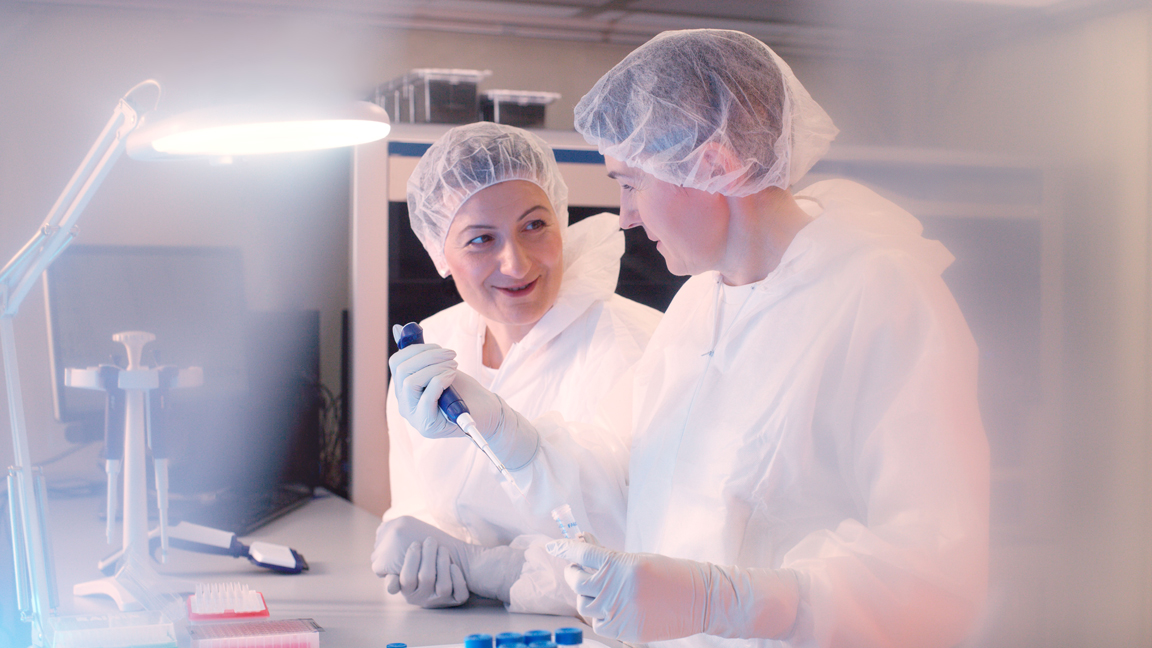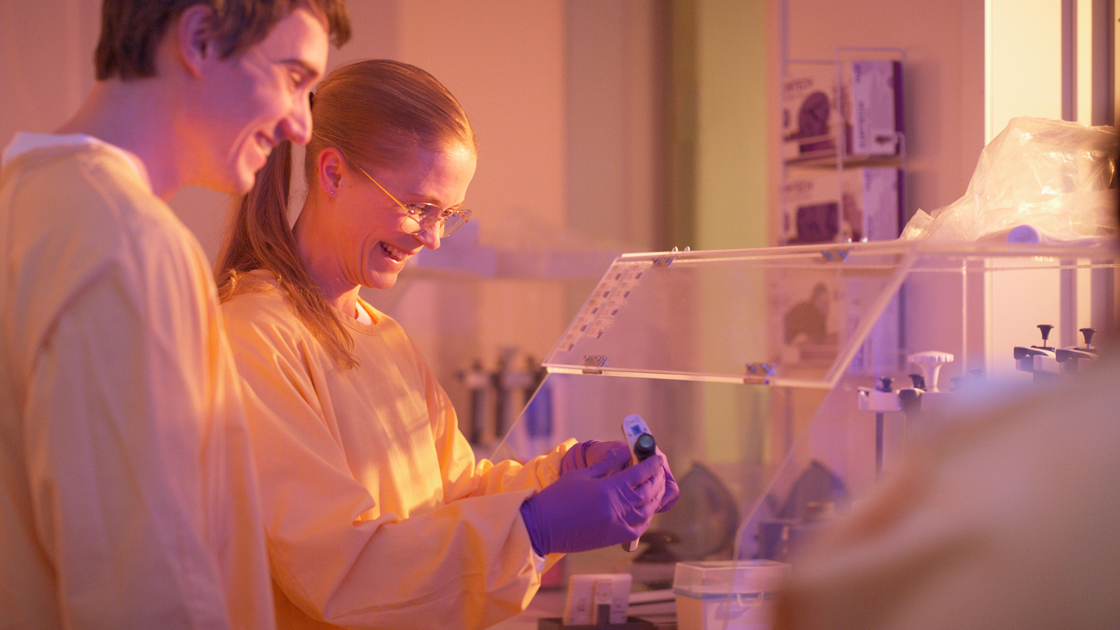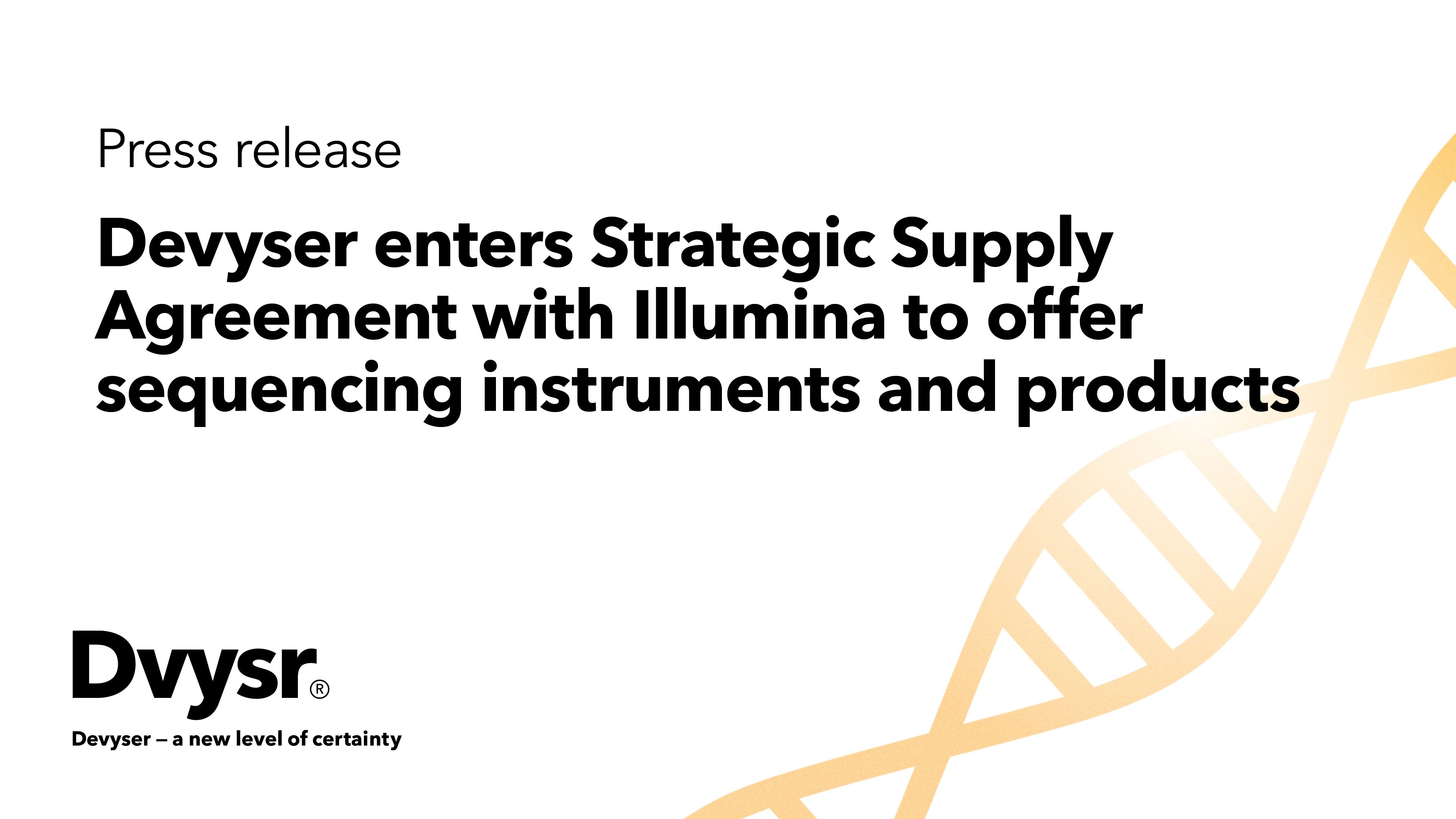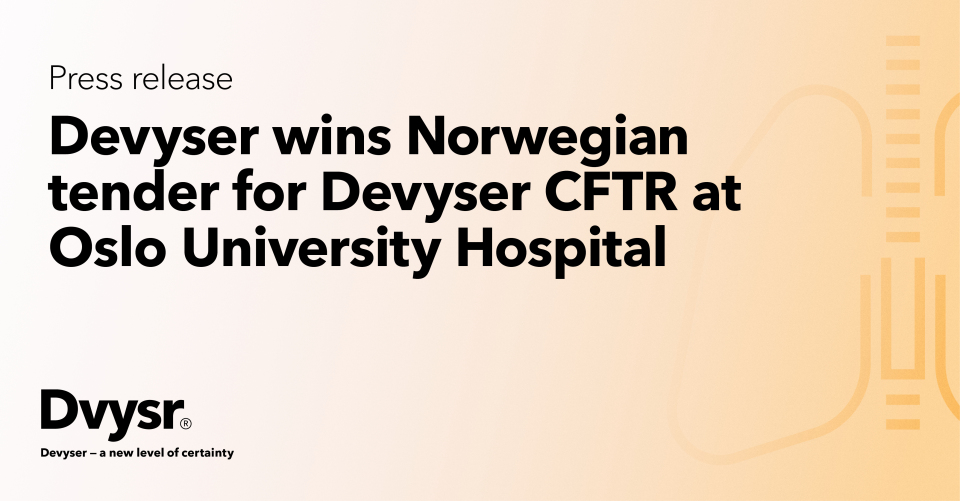Devyser acquires Swedish company Cybergene AB and strengthens its position in the aneuploidy market
Devyser Diagnostics AB (publ), a Swedish molecular diagnostics company, today announces that it has...
Aneuploidy is a condition where a fetus or child has an incorrect number of chromosomes, which can cause a chromosome disorder such as Down syndrome.
The risk of having a child with an aneuploidy increases with maternal age. Women who have experienced one or more miscarriages caused by aneuploidy are at increased risk for chromosomal abnormalities in future pregnancies.
Prenatal genetic screening gives information about a baby's risk of a chromosome disorder. DNA screening to identify the possible cause of fetal loss significantly reduces the long-term psychological distress associated with a miscarriage and enables improved genetic counseling for future pregnancies.

“As a cost-effective rapid strategy that can detect mosaicism, QF-PCR will continue to have an essential role in prenatal diagnostic strategy.”
Dr. Kathy Mann, PhD, Principal Clinical Scientist within the Cytogenetics Department, GSTS Pathology, Guy's Hospital, London, United Kingdom.
Aneuploidies are a common cause of miscarriage, especially in early pregnancy. Any change in the number of chromosomes inside a sperm or egg cell can affect fetal health and pregnancy outcomes.
Some aneuploidies can result in a live birth, but others are fatal in the first months of pregnancy and result in miscarriage.
The risk of fetal aneuploidy increases with the mother’s age. A woman’s risk of giving birth to a live newborn with the aneuploidy trisomy 21 (Down syndrome) rises from one in 1,480 at 20 years of age to one in 85 at 40 years of age.
It is estimated that one in 150 pregnancies may have an aneuploidy, which is the most common cause of miscarriage in the early weeks of pregnancy.
In pregnancies associated with an elevated risk of aneuploidy, genetic prenatal screening can provide important information to the mother and clinicians.
Prenatal DNA diagnosis can be performed through chorionic villus sampling or amniocentesis using quantitative fluorescent PCR. QF-PCR enables rapid aneuploidy detection and is increasingly used for prenatal screening due to its ability to provide information quickly and cost-effectively.
The accuracy and rapid turnaround time of the QF-PCR format makes this the most popular first-line test in genetic prenatal diagnosis of pregnancies at increased risk of aneuploidy of chromosomes 13, 18, 21, X or Y.

We offer a full suite of testing solutions for aneuploidy screening to support genetic prenatal risk assessment during pregnancy and to evaluate pregnancy loss.
Together, our Extend, Complete, Compact and Resolution products cover the full range of genetic analysis test solutions for aneuploidy.
The QF-PCR tests are the most popular clinical choice for first-line genetic prenatal diagnosis of chromosomes 13, 18, 21, X and Y.
They offer high accuracy and rapid turnaround time, delivering results in less than five hours. All require minimal amounts of genomic DNA.
The tests are fast and easy to use. The QF-PCR format is end-to-end – from sample to result. This saves time, is easy to implement and is simple to replicate.
A short handling time of 45 minutes increases lab productivity, freeing up technicians to run more tests in a given time frame.

Fast and effective test data analysis is crucial to achieving accurate outcomes and efficient workflows.
Dedicated software in our products makes analyzing test results quick, easy and trouble-free. For lab personnel, this means a streamlined end-to-end process with unmatched reliability and transparency.
Find out moreNews | June 26, 2025
Devyser launches Devyser HLA Loss: A high-precision NGS assay for post-transplant researchNews | October 29, 2024
Devyser seeks to secure FDA approval for NGS test for kidney transplant monitoringNews | October 28, 2024
Devyser Compact achieves Class III approval in China
Devyser Diagnostics AB (publ), a Swedish molecular diagnostics company, today announces that it has...
Read More

Devyser today announced that it entered a strategic agreement with Illumina, a global leader in DNA...
Read More

Devyser is proud to announce that the company has been awarded a tender by Oslo University Hospital...
Read More

Devyser, a leading provider of advanced genetic testing solutions, has been awarded a new tender in...
Read More